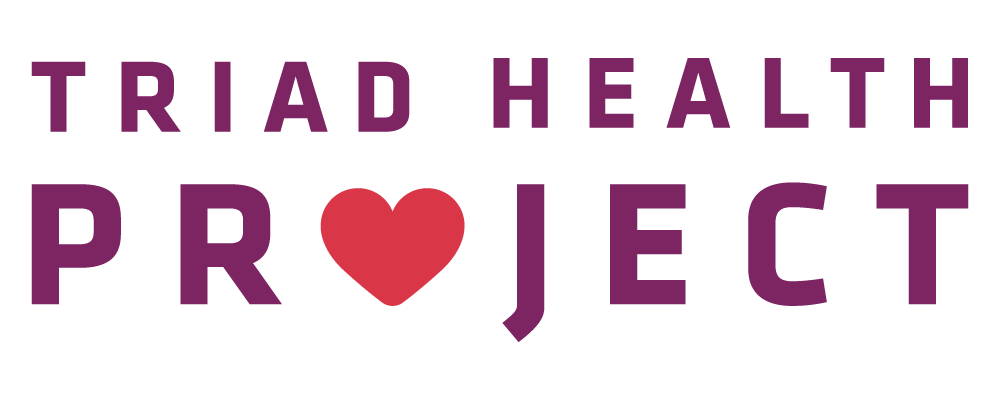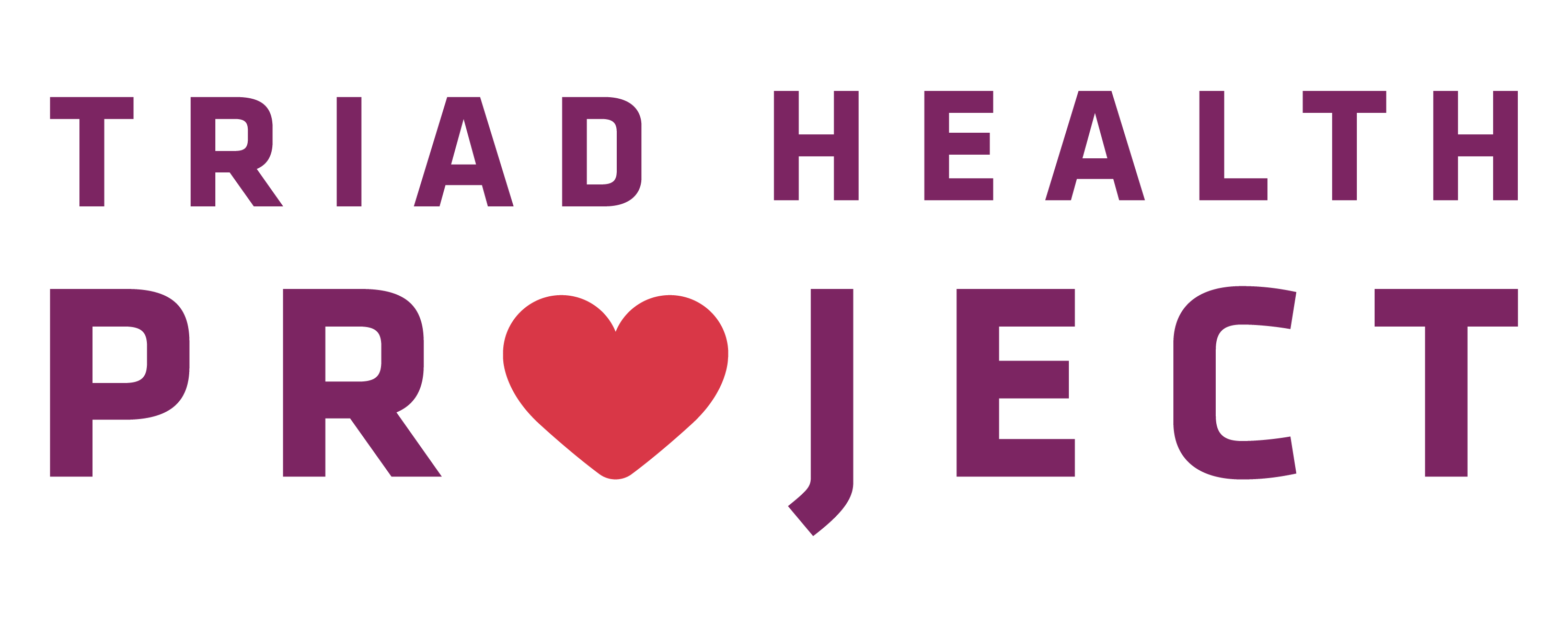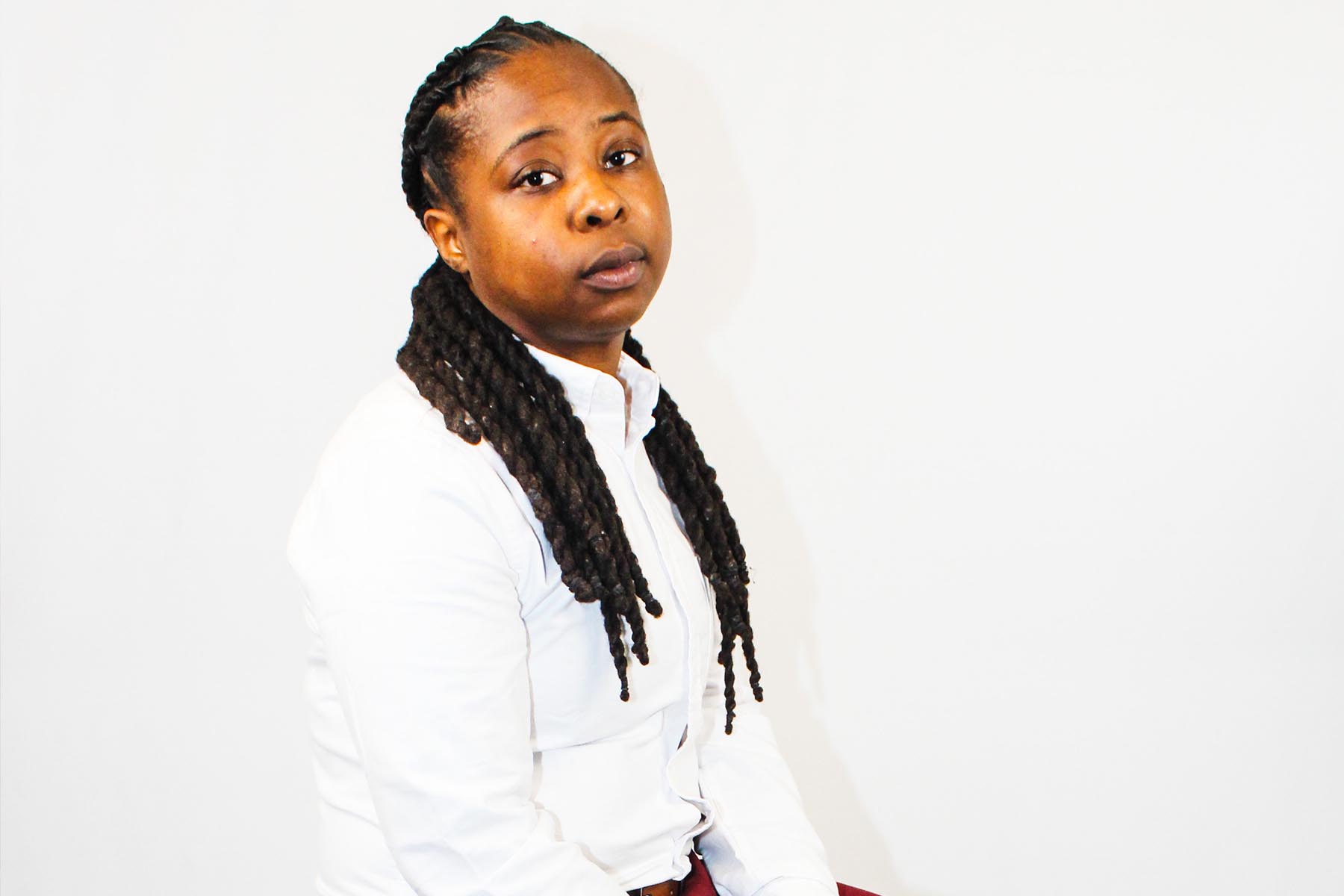The Power of Speaking PassionateLY to End STIgma
Triad-based spoken word artist and activist is creating spaces, events and poems that challenge stigma and expand perspectives.
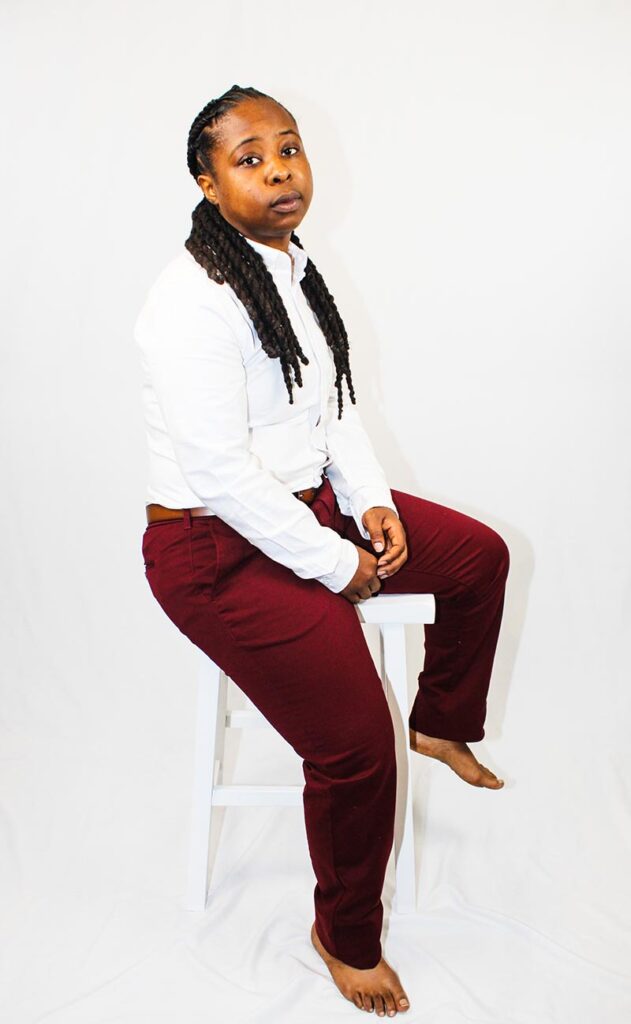
The arts have always united us and reminded us that we have more in common than any differences that could divide us. While this is true, stigmas and judgments still exist for many individuals in the Triad and beyond, especially within the queer and trans communities.
Alysha is a Triad-based spoken word artist and activist, performing as Passionate LY. Through their work, they help advocate and raise awareness for masculine presenting events, as well as other issues that affect this sector. Their poetry, songs, and talks shine a spotlight on the movements being made in this area, as well as the work that still needs to be done.
Triad Health Project (THP) recently caught up with Alysha to learn more about their current work, issues that influence it, and how it’s changing the landscape of sexual health today and tomorrow.
Can you share all the ways you see yourself? All the different spheres?
I see myself as a poet. I see myself as a motivational speaker and activist. I’m an author, a songwriter, and an overall brand.
Was there a moment that crystallized this idea in your life?
I received my BA at UNCG. I have a bachelor’s in arts administration and a minor in psychology and entrepreneurship. When I was in school, it was like, “OK, so you’re going to start a business. What do you want your business to be in?”
At that time, I was active in the community. I was helping a local artist here named Josephus with the Poetry Café. I did an internship with him, and I wondered, “OK, how can I create a business similar to what he has going on?”
He kind of helped me, asking, “What is your mission?” I told him I wanted to empower people to grow. And I really feel like I have started to do that.
How has the power of language shaped you, your mission, and your vision?
The power of language is universal. There are multiple ways that we can communicate with one another, and we don’t necessarily have to use words. I think it’s a beautiful thing to be a poet, to be able to articulate and to create rhythm with my words and in my sentences in that way.
I also want to emphasize Ebonics heavily because the speech pattern and the grammatical structure of Ebonics are totally different from standardized English. That’s something that hasn’t been highlighted, so I continue to find a way to implement that into my writing.
When you talk about your own story, is there a word that embodies you the most? Like a word that you come back to over and over again?
I would say “great”. I know that’s a simple word but I I think that anything in life that you want to achieve you really can achieve. We are once-in-a-lifetime cosmic experiences. We are not just a drop in the ocean, we are the ocean in one drop, and I think that’s so amazing. Within ourselves, we embody it all.
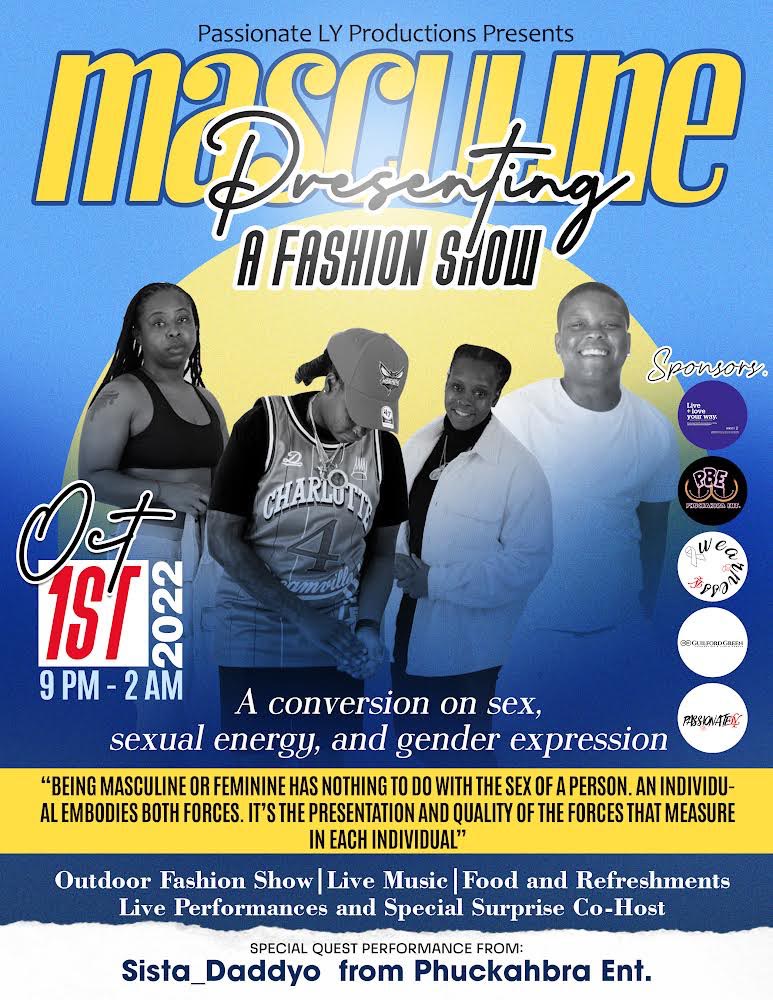
Pronoun usage has come up in conversation a lot. Are there any sort of words of wisdom that you want to share about ways that communities should respond in those conversations?
I’m a strong advocate for using pronouns and addressing people how they want to be addressed. We are bigger than this body that we live in. We’re aware that we have this embodied trauma, that generational curses do exist, and that the spirit realm is within us and around us. Within all of that, we really should take into account that pronouns matter.
You should respect people, and you should see people as they see themselves, not justly the physical organs that they may have. I am more passionate about pronouns in my local community than many individuals who identify like me, and I think that’s just because of the person that I am.
We should see people as they see themselves, but first, they have to know how they see themselves. I understand why we are in the predicament that we’re in. We allowed the system to tell us who we were, and sometimes, in certain instances, it probably wasn’t a choice.
Now, we have more of a choice, so we should definitely take advantage of the opportunity to articulate ourselves.
Where do you go to replenish that spirit? Cause your energy is amazing and that’s what we need.
I take time alone. I like to meditate, pamper myself, and go for a massage. I take time to take care of myself, reflect, write how I feel, educate myself, look into what’s going on around us, look into history, and all of that.
How do you define stigma? How does it impact you and the communities in which you feel connected?
There’s a stigma around being homosexual. I had to deal with that stigma my entire life, so it’s very much real. It was very much a thing of disgrace, you know?
I would ask questions when I was younger, like “What do you think about gay people?” and I was told they have demons in them. I came from that type of background, where it wasn’t a conversation. It was “Oh, wow. Why do you want to be this way? Why do you want to dress this way?” And with the binary mentality we all grow up with, there was little to no data or positive content on queer or non-binary identities.
So, I held onto that. I’m just now at this point of getting away from it, to understand that it is natural, it’s a part of life. I had to figure that out by myself because I didn’t have that emotional support growing up. I was deeply loved but to care for a non-binary child – at the time, there was just little to no resources available for parents.
Stigma is very real because, for one, people don’t want to talk about it. They don’t know how to talk about it in a positive way.
For two, we have been psychologically programmed to think that it’s a problem. You really just have to be vocal for yourself. You have to have confidence in yourself because there’s not a lot of positive content around the ideology of homosexuality or queer identity.
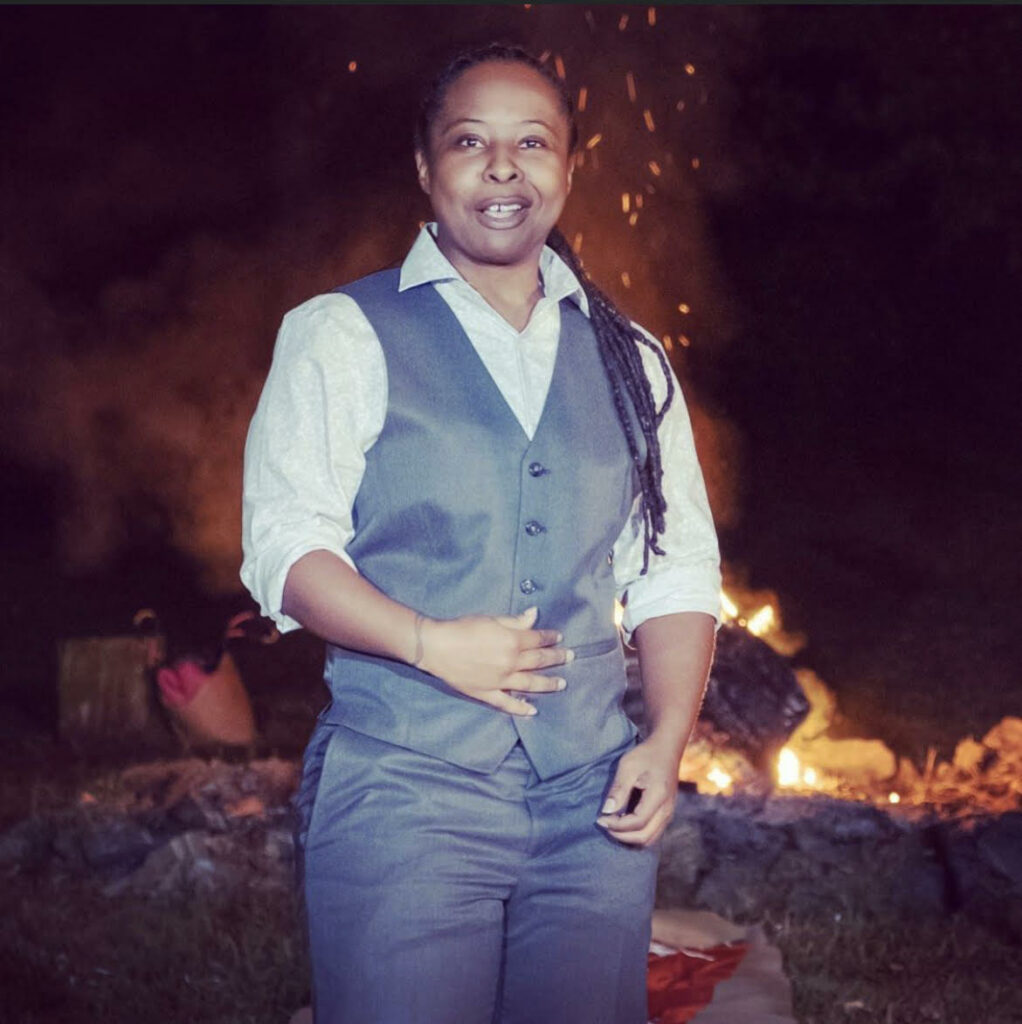
Can you share a little about the fashion show that you just had and the way that contributes to expanding people’s comprehension?
Absolutely. as African American, masculine-presenting women, we have a stigma around us. Others think we want to be a man or that we are overly aggressive. There are negative connotations around the idea of studs, even in Mexican culture or Hispanic culture. I wanted to say, “Hey, we are beautiful.”
I wanted to highlight the beauty and the distinctiveness of individuals who identify similarly to me. Within that, I figured out that no one is really identical. No one can put themselves in a category with someone else and that’s a beautiful thing. So, [the show] was just about highlighting the similarities for these types of women, so they could love themselves and see themselves as they are.
How do you see the relation between the personal and political when communities challenge an inclusive use of pronouns? There’s been a bit of pushback in different communities. We’ve seen a lot of transphobic legislation. We’ve seen a lot of communities target people with trans experience. We’re also seeing it in certain professional climates.
It’s just another form of division, in my opinion.
Another way to divide us. I believe that people should look more into science because that will help with our personal views on human experiences and behavior. Political opinions are traumatizing and our implemented for personal gain. Preferred pronouns are a beautiful thing. It’s just another way for us to identify ourselves. Seeing that there is pushback in some communities just goes to show that we need to continue to raise our voices and show people that we deserve to be seen as we see ourselves instead of how you see us.
So with sexual health, do you feel like there’s an implication or a challenge that’s posed when people are challenged by pronouns or they’re challenged by seeing people for who they are? Do you feel like that has an impact on sexual health as well?
It does damper our personality. It dampers our perspective of ourselves. I think it’s just the lack of communication and guidance around sexual health conversations. There should be more conversations around sexual health and how we have those conversations, I think that’s what’s more important. It doesn’t really have anything to do with our identity. It has to do with a lack of guidance.
I don’t really understand why its a big problem. Pronouns are just like names. If you have a problem with it, it has nothing to do with the individual themselves, has to do with your individual perspective, and with you not wanting to increase your vocabulary, increase your mind, or educate yourself.
As queer individuals, I feel like we have the upper hand because we see life more abstractly than an average person would. We really should look at it as if we are teaching them, we are leading them, and with that, we have to have grace.
Learn more about Triad Health Project’s #StopTheStigma initiative as we continue our mission to see a future free of HIV.
Want to show your support for our work ending HIV and supporting sexual health? Start here.
